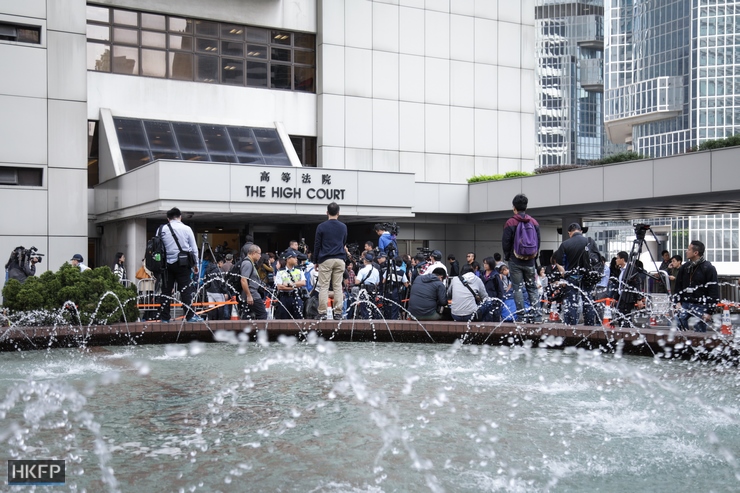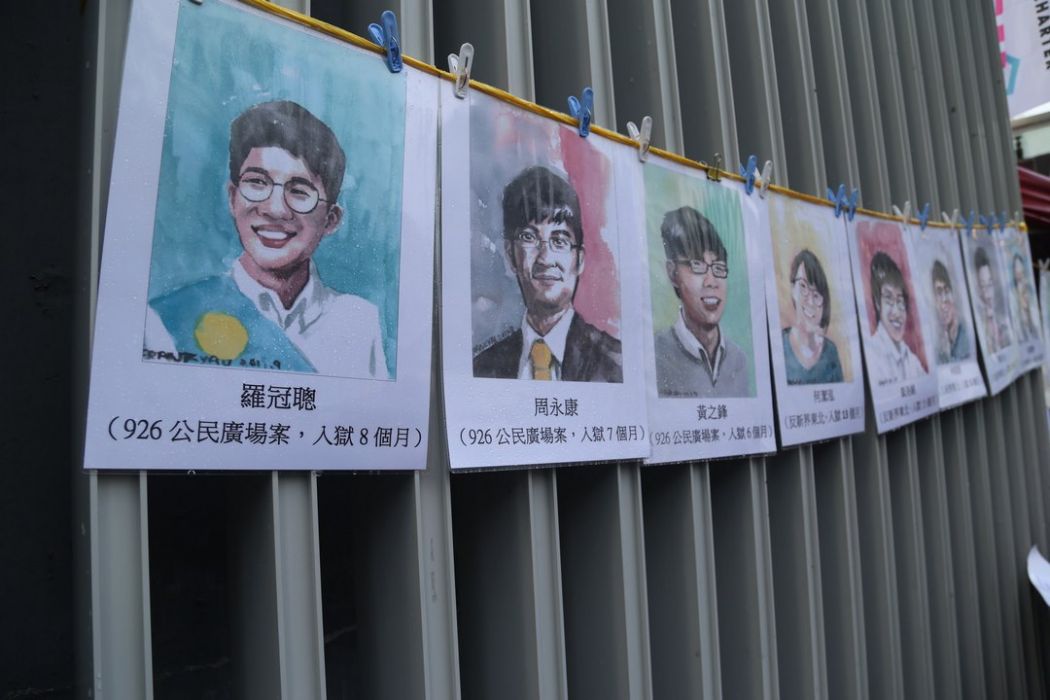Nice to see Mr Grenville Cross joining the ranks of Hong Kong Free Press contributors. No doubt he expected some disagreement. If so, he is not going to be disappointed.
The part of his piece which bothered me was the sentence which went “Far from breaching the ‘double jeopardy’ principle, the Court’s review accords with international practice.” This is really two statements, that the sentence did not emerge from double jeopardy, and that the procedure accorded with international practice. Both these statements are erroneous.

It is true that the “double jeopardy” principle is no longer observed as religiously as it used to be. There is a useful summary of the various possible dilutions in the report of the South African Law Reform Commission on the topic:
“The common law has … been modified by statute in varying degrees, both in the
UK and the Commonwealth generally, and there are now five possible basic sets of situations in relation to trial on indictment –
(a) no right of appeal by the prosecutor;
(b) a right of appeal or “reference” on a point of law, but with no affect on the
outcome of the trial giving rise to it;
(c) a right of appeal against leniency of sentence;
(d) a substantive right of appeal on a point of law against acquittal;
(e) a substantive right of appeal on law, mixed law and fact, and fact alone, against acquittal.”
Various combinations of these arise in different places, although it appears that so far (e) is only found in Singapore, which is not so much a part of the “common Law world” as a hereditary dictatorship. But I digress.

The important point for present purposes is that in the places where the prosecution is allowed to appeal, it is recognised that this is an example of double jeopardy. It may be a desirable exception to the double jeopardy rule but it is an exception.
In the UK the Court of Appeal will actually make a reduction in the revised sentence to reflect this fact, and the reduction is known as the “double jeopardy discount”. The Guide to Prosecutors in Canada makes a similar point. Judges in Australia also administer the “double jeopardy discount”, except in the Northern Territories, where for some reason they are forbidden to do so by statute. That statute also refers to the procedure as “double jeopardy.”
So I think the international lawyers Mr Cross is complaining about were closer to the international consensus than he is in describing appeals by the prosecution as double jeopardy. That does not, of course, mean that they are always objectionable. It does mean that they should be surrounded by safeguards against oppressive or unjustified use, which we seem to have rather missed out on.
In fact as far as I can tell from poking around the internet there is no jurisdiction in which the case of the three activists would have been accepted by the local counterpart of the Court of Appeal. Except, of course, Singapore.
Let us start with the United States. The US constitution specifically rules out double jeopardy, but some statutory exceptions have been allowed, and the law has as a result become extremely complicated.

However if our case had come up there the outcome would have been blessedly simple. The rule was established long ago in a case called ex parte Lange. The court cannot pass a new or increased sentence if the original one has already been served. So that would be that. Life would be equally easy for Messrs Law, Wong and Chow in Canada and the UK, where the prosecution can only appeal in serious cases, and this is ensured by a simple restriction: there can be no appeal against a sentence, however inadequate, passed in a magistrates’ court.
We should also consider another aspect of the “international consensus” which is the question when the prosecution has to give notice of its intention to seek a heavier sentence. The time limit in the UK and in Victoria is 28 days. In Canada it’s a month, which amounts to much the same thing. This is a bit longer than the limit in Hong Kong, which is supposed to be 21 days. This is an interesting oddity to which we shall return.
The UK limit is described as a “hard limit”. If the prosecution misses it then the review is refused. The similar limit in Canada also seems to be hard: prosecutors are treated to that venerable legal phrase “time is of the essence”. The situation in Australia varies from state to state. In New South Wales there is no limit at all. Notice must be given “soon”.
The point about these limits is that they are clearly far too early for an appeal, if there is one, to have been heard. The shortest deadline, I think, is in Mauritius, which gives the prosecution only 14 days.
Clearly the international consensus is that the defendant should know whether the prosecution plans an appeal against sentence before he decides whether or not to appeal against his conviction. And this seems to have been the intention of the Hong Kong legislation. Unfortunately it included a loophole.

The relevant part of the Criminal Procedure Ordinance says that “an application …shall … be filed with the Registrar within 21 days”. It goes on to add “or within such further time as the Court of Appeal may allow”.
The law also says that the application cannot be dealt with by the Court of Appeal while an appeal “against the conviction in respect of which the sentence was passed” is in progress. But that concerns the hearing, not the giving of notice. The fact that the defendants were considering an appeal is a legitimate explanation for the lateness of the hearing. It does not explain why the Department of Justice missed the 21-day deadline, which is perhaps most easily explained by confidence that the Court of Appeal would cheerfully tolerate any delay, however long.
This is regrettable, because the defendant’s right to be notified early is an important right. After all the question whether to appeal involves more than whether the defendant feels he should have been acquitted. The result of an appeal is uncertain, the expense considerable. The defendant may feel that 60 hours of community service is a less daunting prospect than six hours in the Court of Appeal.
Of course none of this gets us any closer to what Mr Cross no doubt feels is the heart of the matter, which is the question whether Hong Kong still enjoys an independent judiciary and the rule of law.
I must confess to agnosticism on the question of the independent judiciary. We do not know what passes through the minds of judges. It is perfectly possible that they arrive in an entirely independent and self-motivated way at prejudiced and intolerant decisions woefully neglectful of the human rights of the people appearing before them.
The rule of law is another matter. Prosecutors really should drop the pretence that the law is a gigantic piece of clockwork which ticks over untouched by human hand or brain. Clearly the recent series of referrals to the Court of Appeal were intended to establish new sentencing norms for some offences which have not traditionally attracted terms of imprisonment. This is something which prosecutors do from time to time. Whether there is anything wrong with it depends on the motivation. When such a change follows a chorus of complaints from senior mainland officials that opponents of the government are not being jailed in quantities commensurate with Chinese culture, there are bound to be suspicions.
The rule of law requires not only that the law be followed. It also requires, if I may quote Lord Bingham’s celebrated work on the subject, that “ministers and public officials at all levels must exercise the powers conferred on them in good faith, fairly, for the purpose for which the powers were conferred, without exceeding the limits of such powers and not unreasonably.”
I am not sure that we are getting that level of service.
